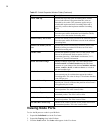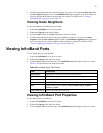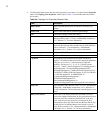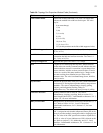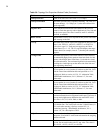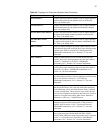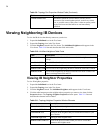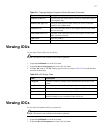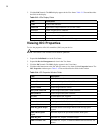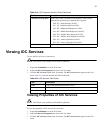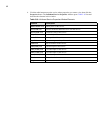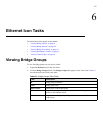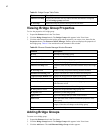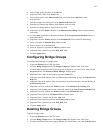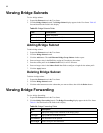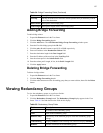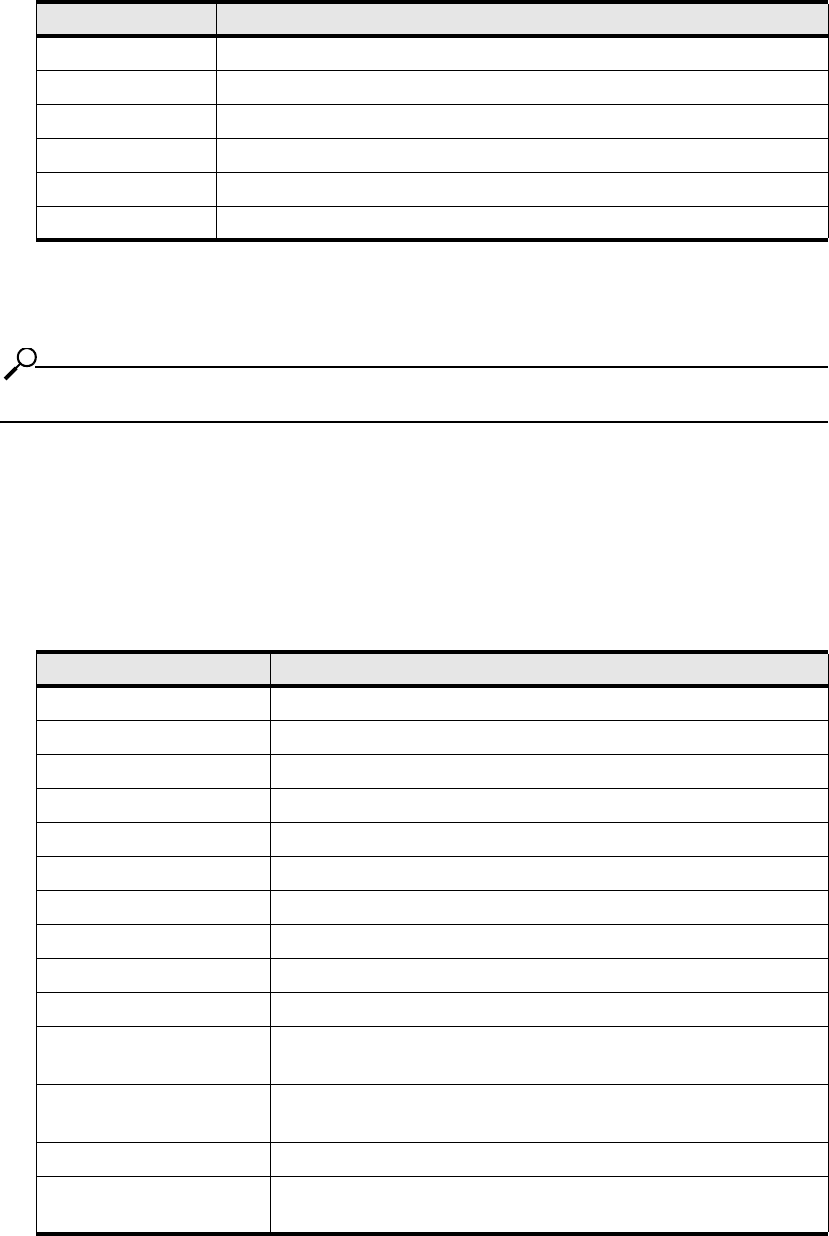
58
3. Click the IOCs branch. The IOCs display appears in the View frame. Table 5-13 lists and describes
the fields in this display.
Viewing IOC Properties
To view the properties of the I/O controllers (IOCs) on your device:
NOTE: This feature is not available on all hardware platforms.
1. Expand the InfiniBand icon in the Tree frame.
2. Expand the Device Management sub-icon in the Tree frame.
3. Click the IOCs branch. The IOCs display appears in the View frame.
4. Click the radio button next to the IOC that you want to view, then click the Properties button. The
IOC Properties window opens. Table 5-14 lists and describes the fields in this window.
Table 5-13: IOCs Display Fields
Field Description
GUID GUID of the controller.
Vendor ID Organization Unique Identifier (OUI) of the vendor.
Device ID Vendor-assigned device identifier.
Device Version Vendor-assigned device version.
IO Class I/O class that the IOC supports.
Protocol Standard protocol definition that the IOC supports.
Table 5-14: IOC Properties Window Fields
Field Description
GUID GUID of the controller.
Vendor ID Organization Unique Identifier (OUI) of the vendor.
Device ID Vendor-assigned device identifier.
Device Version Vendor-assigned device version.
Subsystem Vendor ID Vendor-assigned subsystem vendor identifier
Subsystem ID Vendor-assigned subsystem identifier.
IO Class I/O class that the IOC supports.
IO Subclass Subclass of the I/O class protocol of the IOC.
Protocol Standard protocol definition that the IOC supports.
Protocol Version Protocol version that the IOC supports.
Send Msg Queue Depth Maximum number of messages that the send message queue
supports.
RDMA Read Queue
Depth
Maximum depth of the per-channel RDMA Read Queue.
Send Msg Size Maximum size, in bytes, of send messages.
RDMA Transfer Size Maximum size, in bytes, of outbound RDMA transfers that the IOC
initiates.



